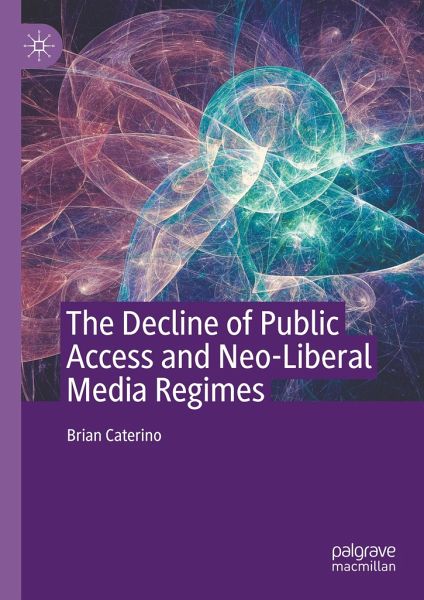
The Decline of Public Access and Neo-Liberal Media Regimes
Versandkostenfrei!
Versandfertig in 6-10 Tagen
65,99 €
inkl. MwSt.
Weitere Ausgaben:

PAYBACK Punkte
33 °P sammeln!
This book examines the reasons behind the declining fortunes of public access channels. Public access, which provided perhaps the boldest experiment in popular media democracy, is in steep decline. While some have argued it is technologically outmoded, Caterino argues that the real reason lies with the rise of a neo-liberal media regime. This regime creates a climate in which we can understand these changes. This book considers the role of neo-liberalism in transforming notions of public obligations and regulation of media that have impacted non-profit media, specifically public access. Neo-li...
This book examines the reasons behind the declining fortunes of public access channels. Public access, which provided perhaps the boldest experiment in popular media democracy, is in steep decline. While some have argued it is technologically outmoded, Caterino argues that the real reason lies with the rise of a neo-liberal media regime. This regime creates a climate in which we can understand these changes. This book considers the role of neo-liberalism in transforming notions of public obligations and regulation of media that have impacted non-profit media, specifically public access. Neo-liberalism has tried to eliminate public forums and public discourse and weakens institutions of civil society. Though social media is often championed as an arena of communicative freedom, Caterino argues that neo-liberalism has created a colonized social media environment that severely limits popular democracy.














